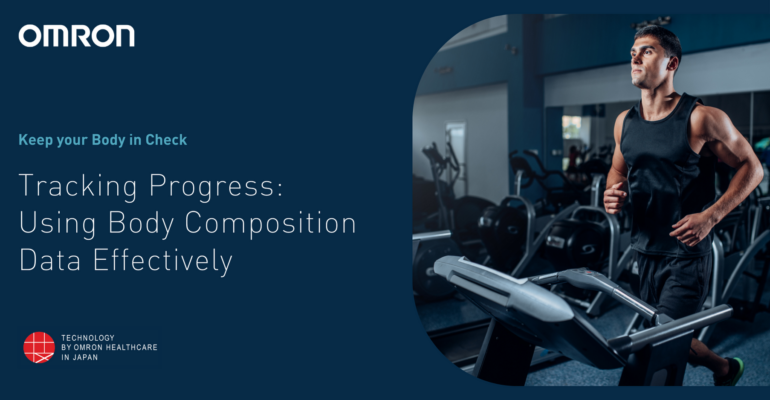Tracking Progress: Using Body Composition Data Effectively
October 7, 2023 2024-02-15 14:43Tracking Progress: Using Body Composition Data Effectively

Tracking Progress: Using Body Composition Data Effectively
Embarking on a fitness journey is an exciting and often life-changing decision. Whether your goal is to shed a few pounds, gain muscle, or improve your overall health and well-being, keeping track of your progress is crucial. One of the most effective ways to do this is by monitoring your body composition data.
In this blog, we’ll delve into the importance of tracking your body composition and discuss how to use this data effectively to achieve your fitness goals.
What Is Body Composition?
Body composition refers to the relative proportions of fat and lean mass (muscles, bones and more) in your body. This is a more meaningful metric than just monitoring your body weight because it provides a clearer picture of your overall health and fitness.
The most common components of body composition include:
- Body Fat Percentage: This indicates the proportion of your body that consists of fat. A higher body fat percentage is often associated with increased health risks.
- Lean Body Mass: This encompasses all the non-fat components of your body, including muscles, bones, and organs. It’s what gives you strength, stability, and overall fitness.
- Body Mass Index (BMI): While it’s a less accurate measure, BMI can still offer a rough estimate of your overall health by comparing your weight and height.
The Importance of Tracking Body Composition
Tracking your body composition is integral for several reasons:
- Accurate Progress Assessment: Monitoring your body composition provides a more precise picture of your progress than just tracking your weight. As you exercise and make dietary changes, you want to ensure that you’re losing fat and gaining muscle. Body composition data helps you do just that.
- Health Monitoring: A healthy body composition can reduce the risk of various health conditions, including heart disease, diabetes, and hypertension. Regularly assessing your body composition allows you to proactively manage your health.
- Motivation and Goal Setting: Seeing positive changes in your body composition can be a powerful motivator. It’s easier to stay on track when you have concrete evidence that your efforts are paying off.
- Personalization: Different people have different fitness goals. Some may aim to decrease their body fat percentage, while others might strive to increase lean muscle mass. Tracking your body composition helps tailor your fitness plan to your specific objectives.
Effective Strategies for Using Body Composition Data
Once you have collected your body composition data, it’s time to put it to good use. Here’s how to utilize this information effectively:
- Set Clear Goals: Based on your body composition data, define specific and measurable fitness goals. For instance, if your body fat percentage is high, you might aim to reduce it by a certain percentage over a set period.
- Track Changes Over Time: Create a log or use fitness apps to monitor your body composition data regularly. Track changes in your body fat percentage, lean body mass, waist circumference, and BMI.
- Adjust Your Fitness Plan: If you’re not progressing as desired, consider tweaking your exercise and nutrition plan. Your body composition data can help you identify areas that need improvement.
- Celebrate Milestones: Achieving your fitness goals can be a long and sometimes challenging journey. Celebrate your accomplishments when you reach milestones. This positive reinforcement can keep you motivated.
- Consult Professionals: If you’re unsure how to interpret your body composition data or are struggling to reach your goals, seek guidance from a dietitian or fitness expert. They can provide expert advice tailored to your unique circumstances.
Omron Body Composition Monitor is a valuable tool for tracking your fitness progress effectively. This innovative device provides essential data on body fat percentage, lean body mass, and more, helping you set clear fitness goals and make informed adjustments to your exercise and nutrition plans.
Conclusion
Tracking your body composition is a powerful tool for achieving your fitness goals and maintaining a healthy lifestyle. It provides a more accurate and meaningful representation of your progress than simply monitoring your weight. Remember that while data is essential, maintaining a balanced and sustainable approach to your fitness journey is equally crucial. So, embrace the power of body composition data and take charge of your fitness and well-being.
Reference:
- https://www.webmd.com/fitness-exercise/what-is-body-composition
- https://pubmed.ncbi.nlm.nih.gov/34444653/
- https://www.healthline.com/nutrition/improve-body-composition#TOC_TITLE_HDR_3






